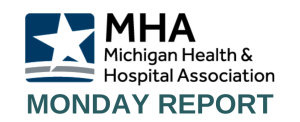The American Hospital Association (AHA) recently released an action alert to impress upon lawmakers the immediate need to support hospitals and health systems. It is important the last session days of the year are used as an opportunity to advance key priorities at the federal level. The AHA has already urged congressional leaders to include a number of important provisions in a year-end legislative package to ensure that hospitals and health systems can continue their mission of caring for the communities they serve.
Lawmakers need to hear how managing the aftermath and aftershocks of the biggest public health crisis in a century has left hospitals and health systems facing significant financial and workforce challenges that are jeopardizing access to care for patients. Members are asked to contact their legislators today and continue to make the case why additional support and resources are needed.
Lawmakers should be urged to:
- Prevent any further damaging cuts to health programs, including stopping the forthcoming 4% Statutory Pay-As-You-Go (PAYGO) sequester.
- Establish a temporary per diem payment targeted to hospitals to address the issue of hospitals not being able to discharge patients to post-acute care or behavioral facilities because of staffing shortages.
- Extend or make permanent the low-volume adjustment and the Medicare-dependent hospital programs — critical rural programs that are due to expire on Dec. 16.
- Make permanent the expansion of telehealth services and extend the hospital-at-home program.
Participate in AHA Advocacy Day on Capitol Hill: Members are asked to inform the MHA if they will be in Washington, D.C. on Dec. 6 and would like to be included in the schedule for visits with members of Congress.
Contact Laura Appel at the MHA for more details.






 The Keckley Report
The Keckley Report